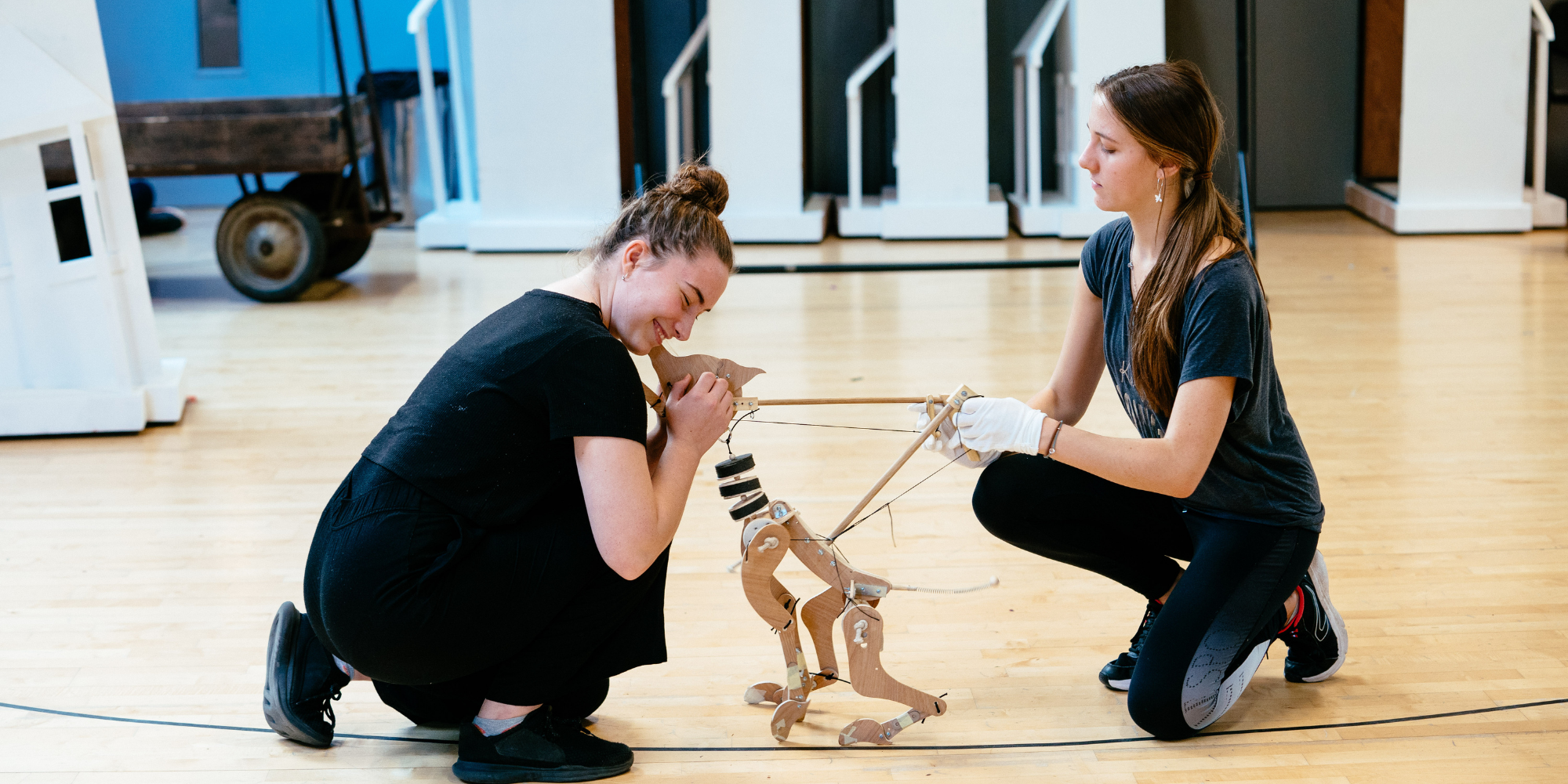
15 years centre stories | Chichester Festival Theatre
BY: Guest Writer
19 Oct 2020
From the youth theatre, schools’ programme and work placements, through to groups with more specific requirements, Chichester Festival Theatre use every level of Arts Award to ensure a good fit for each of their varied cohorts. Dale Rooks, Director of Learning, Education & Participation talks us to about her team’s journey with Arts Award and offers her top tips.
This post forms part of our special series looking at centres who have Arts Award at the heart of their offer. One of the ways we are marking 15 years of Arts Award.
We started delivering Arts Award in 2011 as a more formal way of assessing young people’s art form knowledge and understanding, and to enable them to chart their own creative journeys. Within the Learning, Education and Participation (LEAP) department, we support all levels of Arts Award, from Discover and Explore to Bronze, Silver and Gold.
It is a great vehicle as it enables individuals to record their creative challenges as well as develop and review their artistic and leadership skills. It provides us, as an organisation, with a robust framework for young people to reflect on their progress. In addition to using the awards to validate the artistic activity, many of the skills young people learn are transferrable, and can be applied to other areas of their lives, including confidence, communication, teamwork and self-esteem.
We first got involved with Arts Award through a programme of work we were developing with our Bridge organisation, Artswork, and a cohort of local partner schools. We introduced Bronze level initially alongside a schools’ creative learning programme.
We were also looking for a formal arts accreditation to run in conjunction with our large-scale youth theatre membership. We then rolled the programme out to all our strands of work: youth and outreach, formal education, youth theatre productions, holiday activities, work experience placements, technical youth theatre and traineeships.
As we connected the awards more widely across all our strands, we found it challenging to manage the volume of work, including delivery, evaluation, surgeries and individual mentoring; we put measures in place to ensure that all the LEAP team were trained advisers, with two of the team designated to take overall management. Arts Award is now fully embedded into the LEAP strategic planning and is profiled and celebrated widely across the whole organisation, including at Board level, where evidence and success is documented to the Trustees. Awards are presented annually by the Executive Directors, and wider staff members attend public events led by the young people.
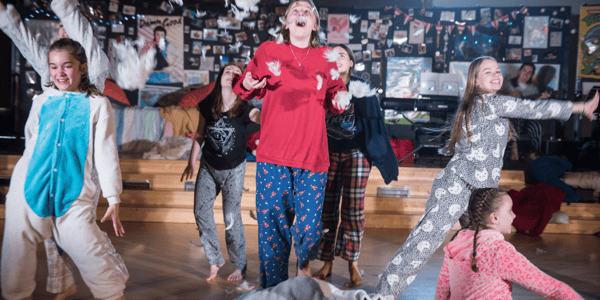
How Arts Award works at CFT
Discover
We have successfully introduced Arts Award Discover to our younger youth theatre groups and within holiday activities where we deliver day-long creative workshops for children aged of five to 11 years. Through taking part in a range of drama or craft activities, the children learn new techniques/genres and are encouraged to experiment with new art forms. From these experiences, they are encouraged to share their knowledge and understanding, by evaluating their own and their peers work and to reflect on these experiences together. To encourage them to research an artist or arts organisation we have created a database of fact cards from which they can extend their research capabilities.
Explore
Arts Award Explore works well alongside our primary schools’ programme. We facilitate a range of participatory arts activities: individuals keep a log of their experiences and then each pupil is encouraged to share what has inspired them. Using different stimuli, groups of pupils create short performances using a combination of scripted and devised work: each pupil presents their Arts Award journey to their peers.
Bronze
We are proud of our innovation to introduce Bronze Arts Award to groups of young unaccompanied asylum seekers. During weekly workshops, participants worked towards, and successfully achieved Bronze Arts Awards, which they then used to support their applications to college. The defined set of criteria provided a robust framework for them to evidence their learning and progression, whilst developing knowledge and understanding of a new art form.
They were enthusiastic about engaging in new arts activities which supported development of their language and social skills in a fun and safe environment. They were introduced to live theatre for the first time in their lives which enabled them to express personal reflection and enjoyment and to share their views about different aspects of the production. Their confidence grew significantly whilst leading an arts skill they had learned, to their peers.
There were a number of challenges due to the language barriers, as many of the young people had arrived in the UK from different countries. The introduction of workbooks was particularly challenging and required a lot of dedicated one-to one time to enable them to understand the concepts. They used translation apps on their phones to enable them to understand new terminology and context. Group discussions using audio files were also used to evidence their active participation in practical activities.
Silver
We have successfully aligned Silver Arts Award to our technical youth theatre programme. The units enable the young people to celebrate personal arts challenges appropriate to their abilities and understanding, with a natural progression into identifying their strengths, weaknesses and specific areas of interest. Individuals can then progress towards practical experience in their specialised area by working on a youth theatre production or event either within, or external to the organisation, they focus on either lighting, sound, stage management, wardrobe, set & costume design, sound technology or video projection. This then transitions them into Unit 2, sharing their skills delivery through effective arts leadership.
Part D – arts research, also works especially well because the young people are aged 15 to 18, therefore looking at options for college or University or the next stage in their career. The young people have great opportunities to explore and research arts pathways and to gain access and first-hand experience and active participation of working with ‘professional’ in-house artists, creatives and production teams. They have adequate opportunities to develop their understanding of the career development by interacting with a range of practitioners and to explore and reflect upon what future career pathways and opportunities are available to them.
Gold
We are particularly proud of our success with our Gold Arts Award which forms a core part of our year-long traineeship programme. The award provides the perfect framework for these early career artists to document their progress and reflect on their leadership development whilst also providing a formally recognised accreditation for the trainees.
For Unit 1 they often work with our youth theatre to direct a sharing performance to ‘extend their own arts practice’. We encourage them to keep a weekly diary where they reflect on their skills development. This provides a fantastic resource to look back on.
We have found Unit 2 to be especially beneficial, allowing the young people to take ownership of their work and to use their individual strengths and interests to devise, deliver and evaluate a project. We have been thrilled with the range of projects delivered including: a digital playwriting innovation, an immersive murder mystery using digital technology and an intergenerational performance at a local dementia support hub.
New projects
More recently, one of our trainees devised and delivered a partnership project between CFT, Asphaleia (a local charity for young unaccompanied asylum seekers), and Barely Methodical (a professional circus and acrobatic theatre company). As part of his award, the trainee organised a four-day residency for the professional theatre company to work with a group of unaccompanied asylum seekers, teaching them a range of circus skills, which then culminated in a performance. This platform for independent learning and facilitating this project through from initial idea to end product, gave him a huge sense of achievement, confidence and great sense of pride in his portfolio.
’The process of developing a small idea into a large-scale project has helped me gain so many skills: I am far more confident, I am better at communicating with varying groups of people, I can multi-task like no tomorrow, but most of all I have found a job I love and have the self-belief to pursue it. I’ve learnt not everything will go to plan but this part of the process, the more flexible I can be, the easier it will be in the long run. The level of satisfaction and pride I got from the work I did was huge. I have also gained a portfolio of professional contacts and a wealth of experience I can use in the future.‘
Freddie Dempster – CFT Youth & Outreach Trainee
Finding new ways to deliver the awards during Covid-19 and lockdown has been a real challenge but we have managed to facilitate a number of approaches to ensure that our young people can continue their engagement with the various units, using digital platforms. The latter has prompted young people to think more imaginatively about their approach to various units, which has resulted in some exciting innovations. Working towards Gold Arts Award, one of our trainees created an inspiring digital, intergenerational film project targeting social isolation in a local care home (Wellington Grange – Chichester). She brought together youth theatre members to create a series of short films, poetry, song, drawings and dance routines for elderly residents, using Zoom.
The project culminated in an online evaluation and celebration of the work for the participants, residents and wider audience. Another young person, for his Silver Arts Award, built a simple lighting rig in his home, teaching his family how to design a blue lighting state to light up his house exterior, in support of NHS.
We also created digital resource packs to support young people completing their awards and encourage more young people to start their journey towards achieving an award, whilst exploring creative challenges at home.
Top tips:
- Ensure that there is good mentoring and support for all young people taking their Arts Award.
- Encourage participants to record their evidence in a way that works for them; this could be a blog or vlog, a website or a more traditional portfolio in a scrap book or folder.
- Look for opportunities in all strands of participatory work because Arts Award is very versatile.
Find out more about Chichester Festival Theatre’s Arts Award programme here and get in touch!
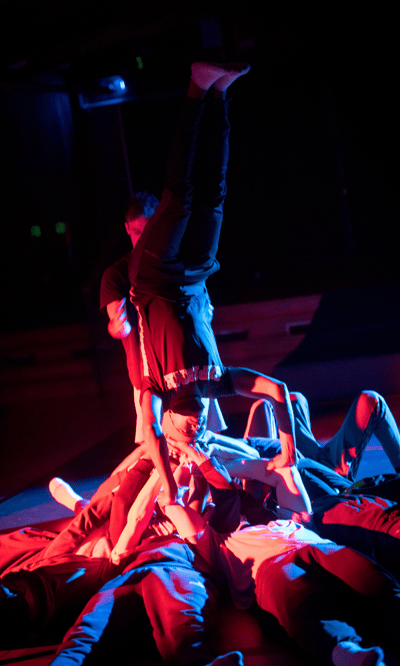
Related posts
BY: Alan Lynch


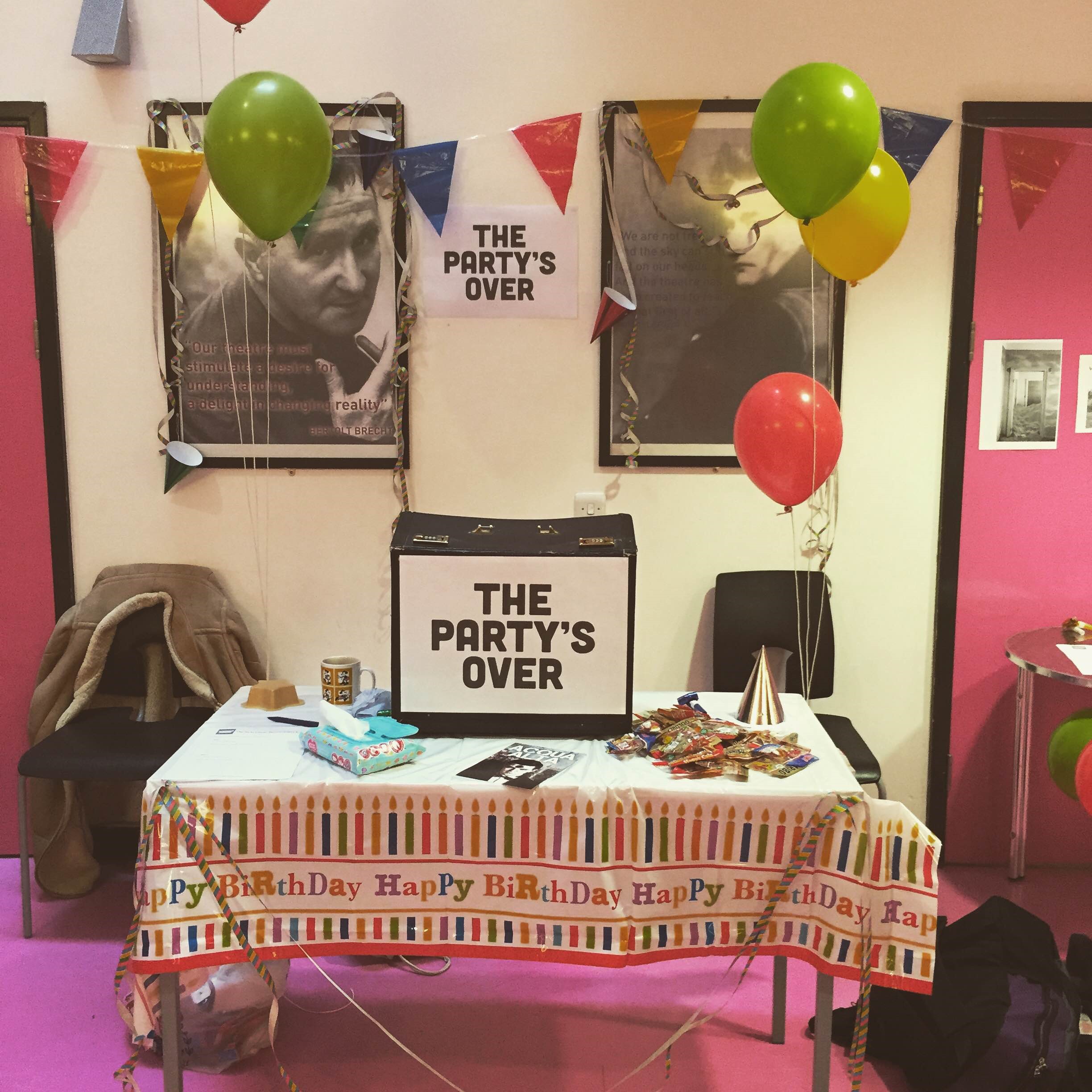
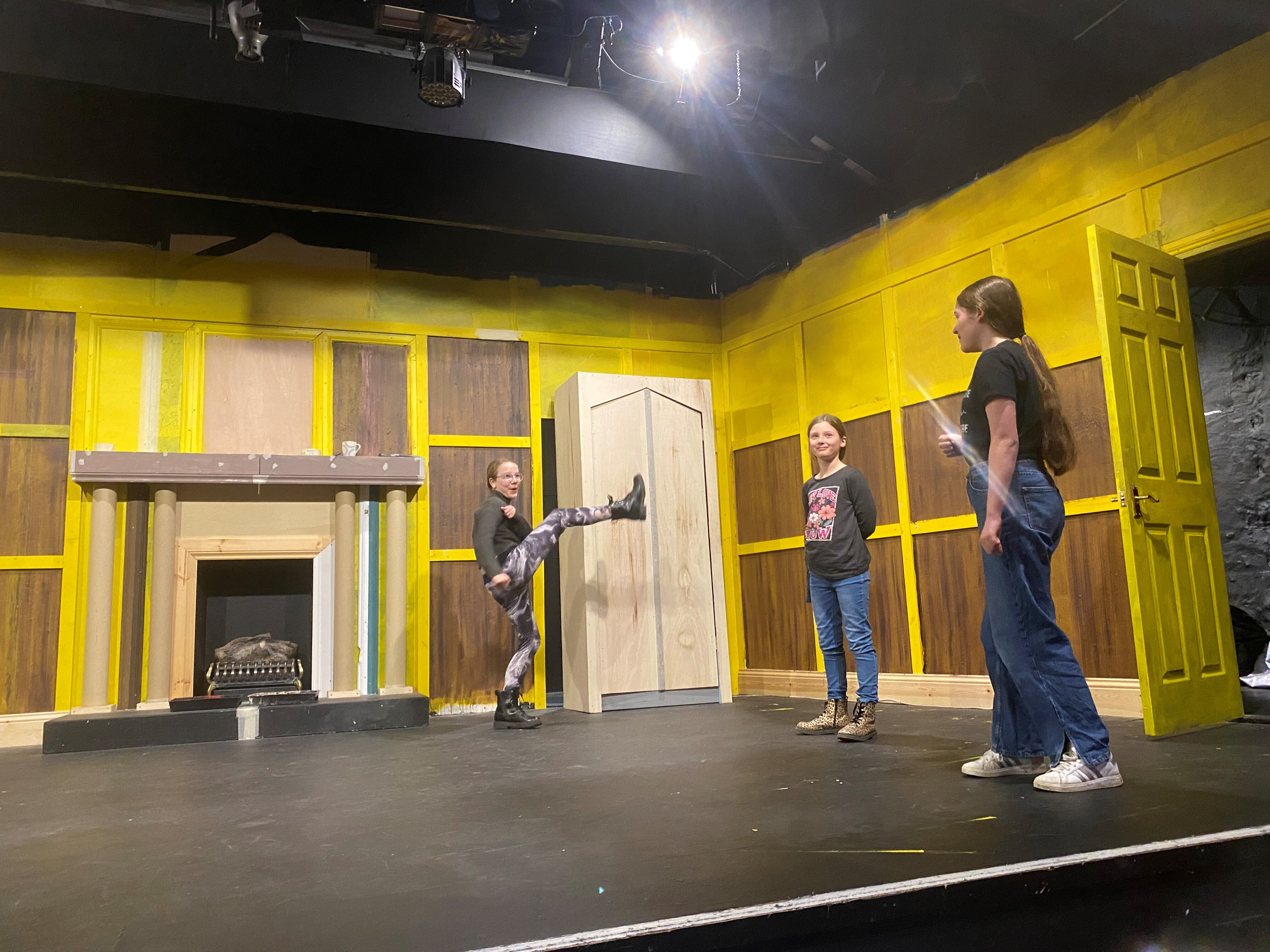
Comments & Replies